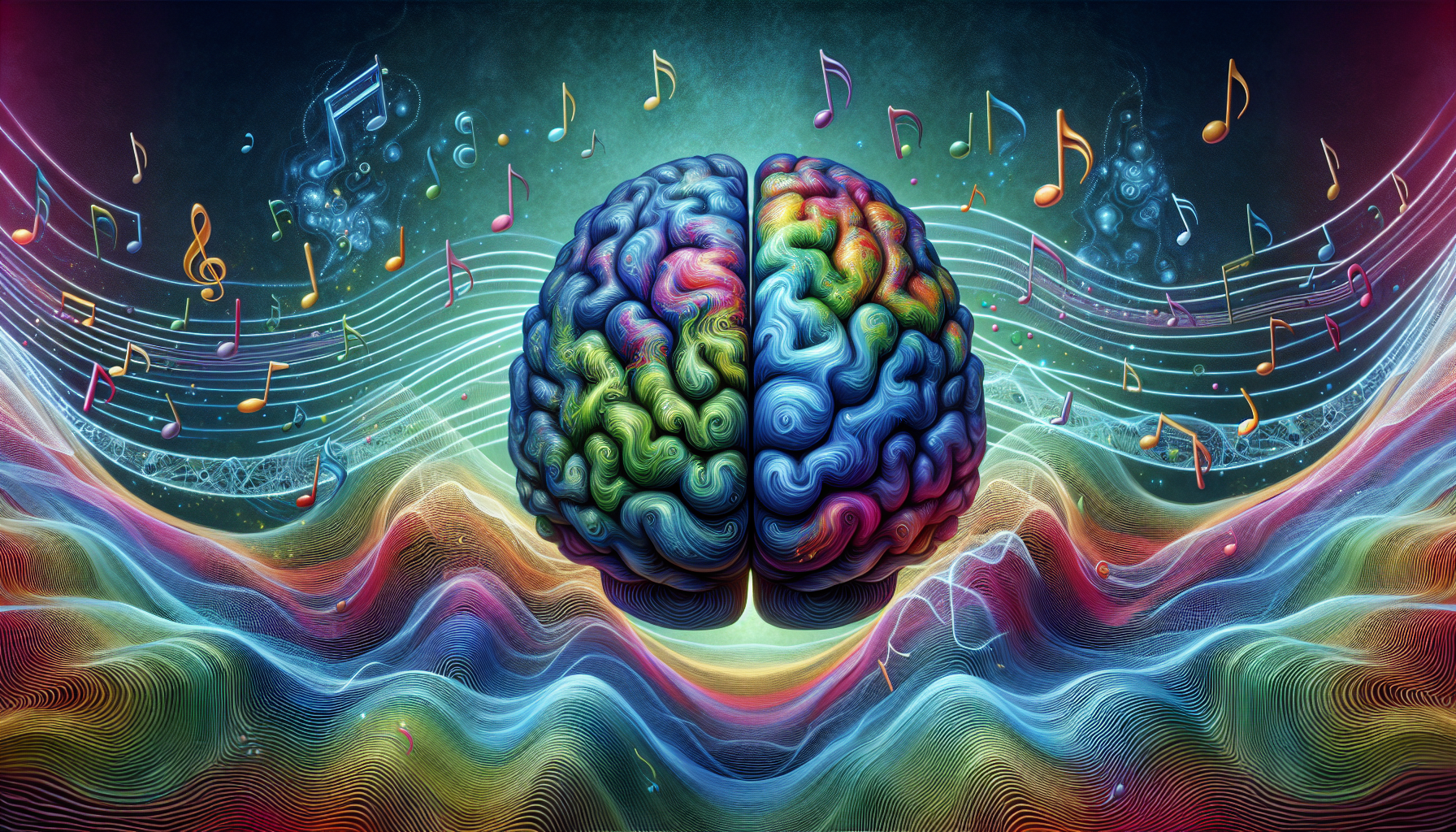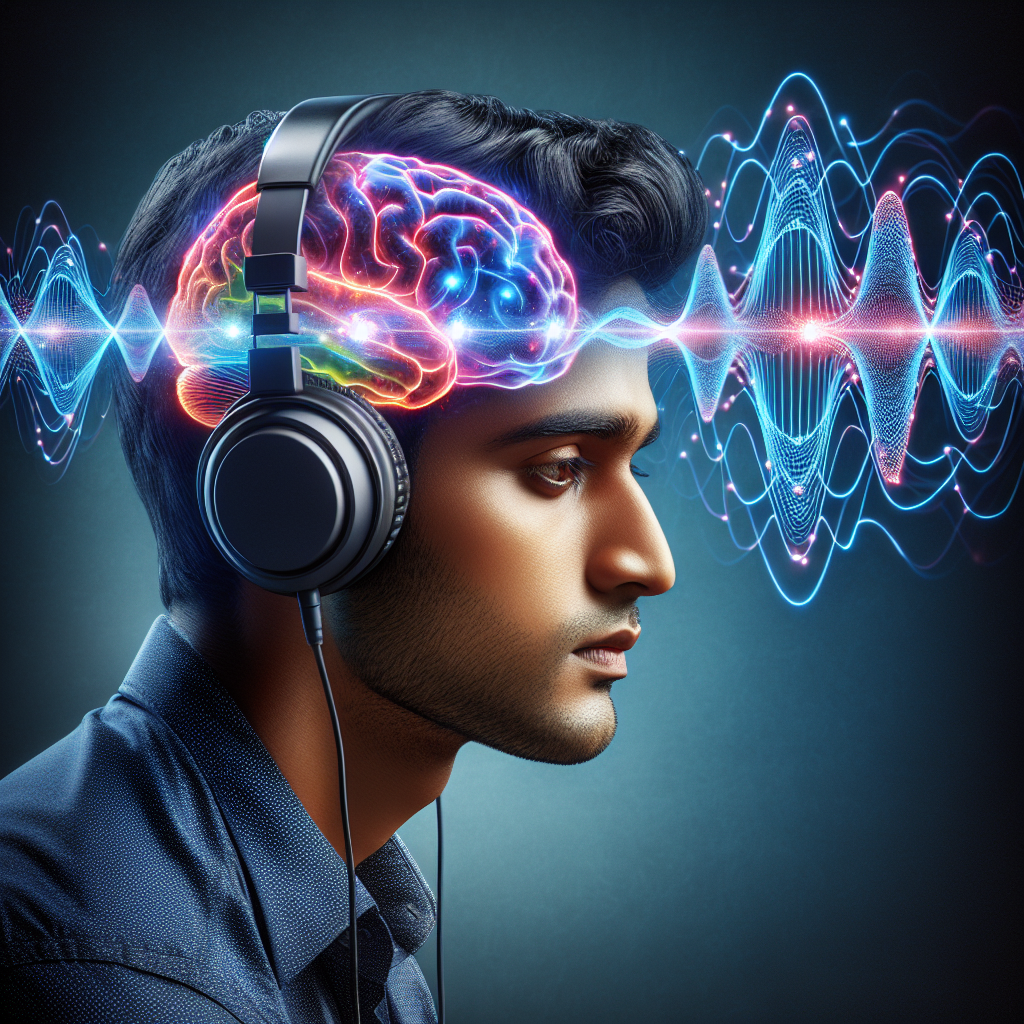Music is an integral part of human culture, offering more than just an auditory thrill; it’s a powerful catalyst for neurological development and maintaining brain health. In this in-depth exploration, we’ll delve into the symphony of benefits that music provides to our brains, supported by scientific insights and practical advice to harmonize your mental well-being with the rhythms of music.
The Symphony of the Mind: Music’s Role in Neurological Development
From the lullabies that soothe newborns to the jingles that aid in learning, music plays a pivotal role in early brain development. Rhythmic patterns and melodies can reinforce cognitive skills such as memory, attention, and even linguistic development. Research suggests that children engaged in musical training can often show enhanced abilities in areas such as verbal memory, second language pronunciation accuracy, and reading skills.
For those seeking a deeper understanding of the impact of music on cognitive development, the field of neuromusicology provides extensive insights. Music’s structure and patterns stimulate the brain in a way that can improve brain function and health over time. Engaging with music, whether by listening, playing, or singing, can be a key component in strengthening brain health, much like physical exercise benefits the body.
Harmonizing Brain Waves: The Therapeutic Effects of Music
The therapeutic effects of music are not limited to development; they extend into the realm of healing and maintaining mental health. Music therapy has proven beneficial for patients with various neurological disorders, including dementia, stroke, and Parkinson’s disease. It can aid in the recovery of cognitive function, as well as improve mood and reduce anxiety.
One intriguing area of research is the impact of music on brain wave activity. Different types of music can elicit varying responses in the brain, which can be harnessed for therapeutic purposes. For instance, the calming effect of classical music can lead to an increase in alpha waves, which are associated with relaxation and reduced anxiety.
The Cognitive Concerto: Regular Musical Engagement for Brain Health
As we age, the need to maintain cognitive health becomes more critical. Regular musical engagement can be a valuable strategy in this regard. Playing an instrument or listening to music can be likened to a full-brain workout, where multiple brain areas are activated, including those involved in auditory processing, motor control, and emotional regulation.
Beyond the immediate joy music brings, it can also contribute to long-term brain health. The act of learning and playing music has been linked with increased neuroplasticity, the brain’s ability to form new neural connections throughout life. This can be particularly beneficial in combating age-related cognitive decline.
For those interested in the relationship between cognitive activities and brain health, the article titled "The Role of Mental Stimulation in Combatting Age-Related Memory Loss" provides further valuable insights.
The Rhythmic Remedy: Music as a Tool for Managing Stress and Enhancing Mood
The influence of music on our emotional state is profound. It can act as a stress-reliever, mood enhancer, and even a motivator during physical exercise. The connection between music and mood is well-documented, with studies showing that music can lead to releases of dopamine, a neurotransmitter associated with pleasure and reward.
In the realm of mental health, music’s role is multifaceted. It can serve as a form of expression for those who find it difficult to articulate their emotions, and as a coping mechanism for those dealing with anxiety or depression. This underscores music’s value not only in recreational settings but also as a component of therapeutic interventions.
For further reading on the mood-altering effects of music, consider the insights offered in the article "The Influence of Probiotics on Brain Function and Mood".
The Melodic Mindset: Incorporating Music into a Healthy Lifestyle
Incorporating music into one’s lifestyle can be as simple as creating a playlist for various activities or as dedicated as taking up an instrument. The key is to find what resonates with you and make it a part of your routine. Whether it’s through dance, attending live concerts, or using music as a background for meditation, the ways to engage with music are as varied as its genres.
For those looking to integrate music into their fitness routine, the benefits are twofold. Music can boost motivation and performance, providing a rhythmic backdrop that aligns with your workout pace. The intersection of music with physical exercise is explored in depth in the article titled "How Physical Fitness Influences Brain Structure and Cognitive Function".
The Chorus of Science: External Resources on Music and Brain Health
To deepen your understanding of music’s impact on the brain, here are several external resources that offer niche and specific insights:
- A study on the Mozart Effect and spatial reasoning skills.
- Research on the impact of music on stress reduction during medical procedures.
- An exploration of music therapy and its effectiveness in treating various psychological disorders.
- A review of studies on music and neuroplasticity in the adult brain.
- An analysis of music’s influence on cognitive performance.
In conclusion, music is far more than a source of entertainment; it is a vital component of neurological development and a proactive ally in maintaining brain health. Whether through the simple act of tuning into your favorite songs or engaging in music therapy, the harmonious connection between music and the mind is undeniable and well worth incorporating into our daily lives.



